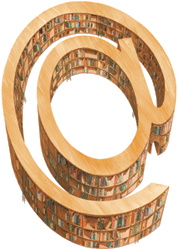Europeana Food and Drink
Europeana Food and Drink was a 30-month project funded by the European Commission under the CIP ICT Policy Support Program (ICT PSP). It aimed at promoting a wide-ranging use of the resources available in Europeana, the portal of European digital cultural content.
Europeana Food and Drink involved not only cultural institutions but also the general public, the creative industries and the gastronomy sector in creating, sharing and reusing the contents illustrating the rich and lively European gastronomic culture.
The British association Collections Trust led a consortium of 28 partners from 16 European countries. ICCU was involved as data partner and brought together other Italian cultural institutions (the National Central Library of Rome, the Alessandrina University Library, the National Central Library of Rome, the Library of Modern and Contemporary History and the Archeology Superintendence of Lazio and of Southern Etruria and the Superintendencies for the archaeological heritage of Lazio and Southern Etruria).
Project results:
Europeana Food and Drink involved not only cultural institutions but also the general public, the creative industries and the gastronomy sector in creating, sharing and reusing the contents illustrating the rich and lively European gastronomic culture.
The British association Collections Trust led a consortium of 28 partners from 16 European countries. ICCU was involved as data partner and brought together other Italian cultural institutions (the National Central Library of Rome, the Alessandrina University Library, the National Central Library of Rome, the Library of Modern and Contemporary History and the Archeology Superintendence of Lazio and of Southern Etruria and the Superintendencies for the archaeological heritage of Lazio and Southern Etruria).
Project results:
- contents: over 72,000 new high-quality digital resources published in Europeana (48 data partners from all over Europe!);
- synergies: retailers and distributors of food and drink have collaborated with cultural institutions in campaigns aimed at stimulating the knowledge of European food and wine culture;
- valorisation: books, apps, virtual and real exhibitions have contributed to the dissemination of the heritage managed by the participating institutions;
- technologies: a suite of 9 free applications aimed at learning, research, gaming and tourism, available on the project website and produced thanks to the collaboration between cultural institutions and creative industries;
- research: two prototypes, the Technical Demonstrator and the Semantic Demonstrator, to classify and make semantic enrichment of data published in Europeana;
- creativity: the three editions of the Open Innovation Challenge that have given space to the creativity of young creative talents and demonstrated how digital cultural contents, if released freely on the web, can be a driving force for the development of cultural industries.
Related articles:
- Il progetto Europeana Food and Drink Il cibo, il bere e il patrimonio culturale – published in DigItalia, year X, 2015, pp. 141-146.
- Europeana Food and Drink: l'incontro tra enogastronomia e patrimonio culturale – published in DigItalia, year XI, 2016, pp. 117-123.
